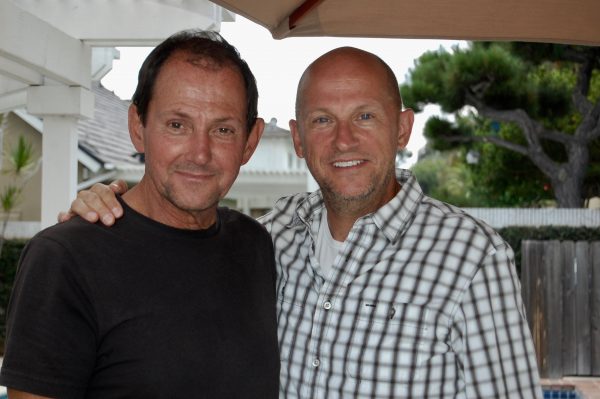
My phone rang, it was 8:45 pm CDT. “He’s gone,” my nephew quietly said. It was the evening of September 1st.
My brother, Greg, finished his Journey after a half-dozen years of his battle with an Alzheimer-like opponent. Last March we visited him and his wife, Bobbie in Southern California. He didn’t recognize me, and it was clear he was slipping away.
He was in Hospice care for about a week. Bobbie, Greg, Jr., and Danielle were at his side.
The Story
There are many phrases you might use when it comes to telling a story.
- “But that’s another story” — when you don’t want to go there, right now
- “It’s a long story” — when you don’t want to talk about something because it’s too painful or involved
- “That’s the story of his/her life” — used to describe how a particular misfortune seems to repeat itself in someone’s experience
- “To make a long story short” — when you don’t want to go into greater detail
- “It’s the same old story” — indicates how a bad situation or response is familiar
By definition, a story can be an account of imaginary or real people and events. In the business of life, our relationships often include both what is imagined (or believed to be true) and what really happened, the truth.
There are always gaps, missing information. We don’t engage life or each other effectively when there are gaps in the Story or distance in the relationship. By default, we fill in the gap whether with the truth or just our perception.
By the way, perception is not reality. To believe “perception is reality” is a lazy reaction to someone or a situation because we won’t do the work required to discover the truth in the story.
So, how do you discover reality not the imaginary story?
You must Create Space to Think to pursue the truth. Creating space is the disciplined use of time, place, and resources to reflect on the truth found in the Story. And by truth, I mean the facts or reality, feedback, experience, success, and failure. The truth which is hidden in plain sight, in the Story.
Five Realities of the Story
When it comes to the Story and our lives, there are five considerations to keep in mind.
- Everybody has a Story. Like you, every person you meet today, has a story. It is shaped by life experiences, disappointments, choices, fears, perceived advantages or disadvantages; what happened just before stepping into your presence. While unproductive behaviors are not accepted, there is a reason. Everybody has a story.
- Every day you add to the Story. Some days are ordinary, other days are chapter-like, and then, there are those days that mark a new volume or season in life.
- Today, you will have an influence on someone’s Story. How you are showing up today, in that hard chat, in the conference room or hallway, over lunch or at home over dinner has an effect. As simple as your smile or lack of eye contact.
- There’s always more to the Story. To remember this is to slow down the unproductive jumping to conclusions, making of assumptions, rushing to judgment, or forming an opinion. Be more curious.
- You are responsible for writing your Story. It’s easy to give the pen away to another. A voice from the past that planted a seed of doubt or fear. You are responsible for taking your pen and writing the Story you want to tell.
Creating Space to Reflect
On Labor Day, I invested several hours flipping through old photo albums and my digital Photo files. The effort was to help me remember our Story. Today, I’m struck by The Journey.
- Looking at baby and childhood photographs, I see innocence and adventure.
- Flipping through seasons-of-life memories, I recognize choices and consequences.
- Embracing end-of-this life images, I’m more aware of life’s brevity and eternity.
Oswald Chambers reminds us of this guiding perspective, “What we call the process, God calls the objective.” The Journey is not linear. Today, this moment is what matters, let us choose wisely.
Here’s some good news: no matter your age you can embrace the innocence and adventure, the choices and consequences, and the brevity and eternity of being human.
What do you want more of in your Story?
Take courage and write the Story you want to tell.
That’s the parting gift my brother offers to me and now, to you.
Write boldly and with courage, it’s your Story.
Steve

Dedicated to my young, older brother:
Gregory Dean Laswell, Sr.
October 9, 1951 — September 1, 2018
